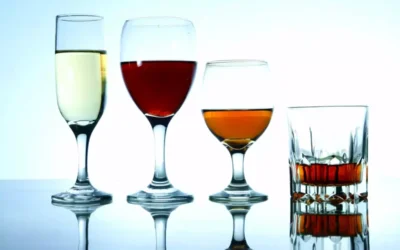Content
The majority of people are acutely aware of the long-term and very damaging effects alcoholism has on the body, but not many know that just as much damage can be done to relationships as well. The fact that alcoholism has a simultaneous destructive effect on physical and mental health and (committed and intimate) relationships is what makes it so different from other chronic health conditions. If you think alcohol may be affecting your relationships, it might be a good idea to consider speaking with a healthcare or mental health professional. They can help determine whether what you’re experiencing is alcohol use disorder and recommend further evaluation or treatment if necessary.

Alcohol abuse, over time, will most likely result in a lack of sexual functioning in both men and women. As a person becomes more addicted, they tend to lose interest in sex or being close with someone as their abuse becomes their number one priority. Alcohol abuse in males is known to create difficulty in becoming or staying aroused often resulting in erectile dysfunction. Women have been known to suffer from a decreased libido from alcohol use disorder also. There is evidence that a relationship can make it, but some that would argue that it most likely won’t. For the married population with one person being a heavy drinker, research shows this is 50% more likely to end in divorce according to a study in Medical Daily.
Violence
Peaks Recovery is licensed to provide the highest level of inpatient and residential programming in Colorado. In addition to satisfying state criteria, we have further received the highest recognition from the American Society of Addiction Medicine (ASAM) for our 3.7 and 3.5 levels of care. Interventions such as these would need to involve community figureheads and other key stakeholders in order to make them workable solutions.

CBT is known for having homework – activities done outside the therapy session – to address the specific needs of the client. This could be reading something that applies to you or even confronting a problematic individual in your life. While this can be difficult, you will get the most out of therapy by doing this. In the United States, 55% of the victims of intimate partner violence believed that their partner was drinking prior to a physical assault. While there is some violence by women toward men, it is mainly reported that there is violence by men toward women. First, let’s look at some of the statistics on married people and alcohol.
Understanding the Risks Of Mixing Alcohol and Drugs
Our friends’ attitudes can often influence us in ways we aren’t aware of. Surrounding oneself with people who drink heavily or have other substance use issues may reinforce these bad habits. A study by the American Academy of Child and Adolescent Psychiatry (AACAP) identified that 1 in every 5 adult Americans lived with a relative who how alcoholism affects relationships abused drugs or alcohol during their adolescence. If you feel like alcohol has been affecting your relationships, consider reaching out for help so that you can be your best self for the people around you. Alcohol can greatly increase the chance of aggressive behavior in some people and often plays a role in intimate partner violence.
Children are likely to experience a number of problems related to the conduct or financial situation of their parents when alcoholism is involved. Children may experience neglect or physical and mental abuse as a parent loses awareness of their actions due to the effects of alcohol. Children may also find problems with their own social development appearing due to a parent dealing with alcohol abuse becoming unwilling or unable to support the child’s endeavors. This can range from missed events, such as soccer games or birthday parties, to outright neglect. The vast majority of outcomes from alcoholism are negative, and damaged relationships are a common byproduct of alcoholism.
Individualized, evidence based treatment, to fit your needs.
Some people already feel so much shame for their alcoholism, they tend to begin rationalizing their other morally detrimental decisions. Regrettably, many people grappling with alcohol use disorder become secretive in an attempt to hide their drinking problem. Additionally, aggression and mood swings are prevalent, as well as a general deterioration of morals. Alcohol slows your brain’s synapses and chemically alters your body by affecting levels of serotonin—the chemical transmitting mood signals within the brain. These physical changes cause your emotions to get out of control and cause people to do or say things out of the norm. Give us a call and we can help find the right treatment program for you or your loved one – even if it’s not ours!
- Individuals who misuse alcohol experience physical impairments that can draw others into caring for them.
- Some may drink to celebrate a special occasion, while others may drink to relax or escape the stressors of everyday life.
- The psychological effects of this alcohol tolerance and dependency may cause the sufferer to become withdrawn and less supportive of colleagues, friends and family members.
- Dealing with an alcoholic family member can be a prolonged and exhausting process.
- Families and others that rely on a sufferer of alcoholism are likely to experience problems related to financial troubles caused by drinking habits.
Drinking problems can adversely change marital and family functioning, but they may also increase due to family problems. The most important thing you should avoid doing is blaming yourself and taking negative reactions personally. Regardless of the reason and nature of these arguments, ongoing conflict about alcohol can lead to breakdowns in communication and ongoing relationship problems. If one partner is engaging in risky behaviors like driving under the influence or gambling, this can easily cause a relationship to implode. If someone you love is struggling with an alcohol problem, get in touch today and we can help you work through the situation.
Changes in your personality can cause you to interact differently with the people around you — and not always for the better. Relationships thrive when you can effectively communicate with each other, but it can be hard to do that when you’ve been drinking.
However, many would argue that – aside from the alcohol abuser – their partner often feels the biggest impact. It’s clear that drinking hurts relationships, and there are numerous ways it can damage marriages and other intimate partnerships. Alcohol abuse can lead to personality changes and negative behaviors, and studies3 have linked that alcohol addiction to aggression and violence within marriages. Earlier research3 linked heavy drinking to reduced marital satisfaction, and more specifically, the stress related to alcohol misuse created problems within marriages.
Understanding the signs that you may need rehab for your alcohol addiction is a good first step. It’s also important to keep in mind that you cannot save anyone from his or her alcoholism. When faced alcoholism inside a relationship, seeking treatment may be the best option. Treatment can help the person with the drinking problem begin recovery and start living a healthier life. When alcohol is involved this raises concern for codependency probabilities as well as abusive behavior both verbally and physically.
Individuals struggling with alcoholism often find it challenging to maintain healthy relationships, including romantic ones. ” Know that most people who are casual drinkers do not ask this question. Common signs include being unable to control your drinking or lacking the ability to stop or reduce your alcohol intake. An alcohol use disorder is also characterized by negative consequences, such as failed or troubled relationships with loved ones.
Further, the caregiver grows accustomed to a relationship with the person misusing alcohol that is primarily based on caregiving. The line between helping an individual who is misusing alcohol becomes blurred with enabling them https://ecosoberhouse.com/ to maintain the addiction. Although even the strictest accountant or budgeter can make an allowance for entertainment expenses, ongoing drinking can quickly cause people to spend beyond their allotment for socializing.
- Codependency can be between two people abusing substances, family members or spouses of people misusing substances, or children of individuals struggling with substance abuse.
- Alcohol use disorder (AUD) is a common addiction, affecting nearly 15 million adults in the United States.
